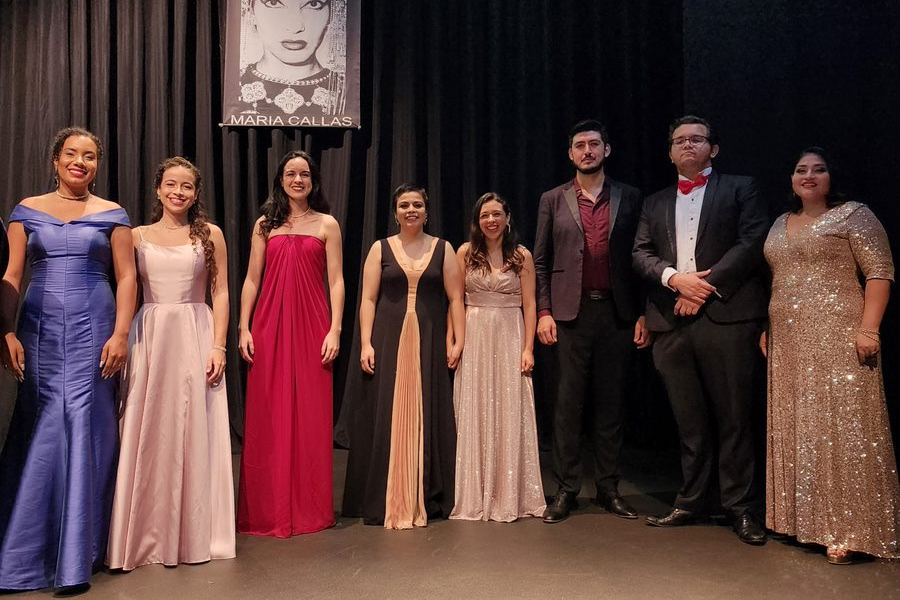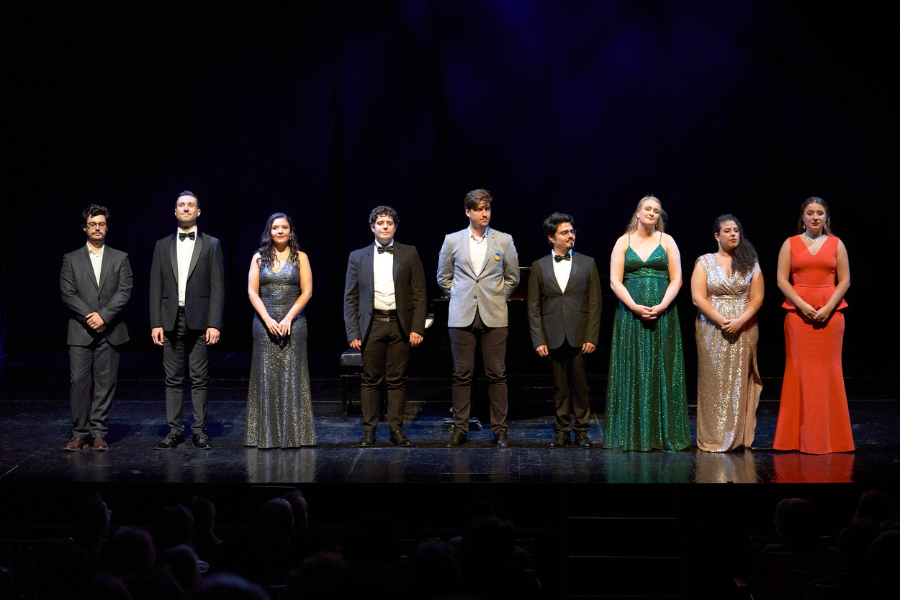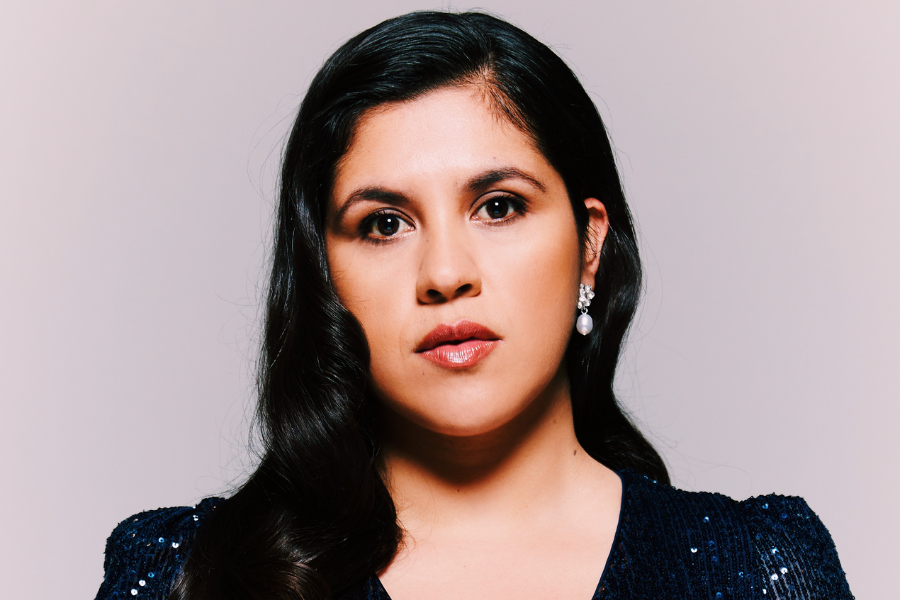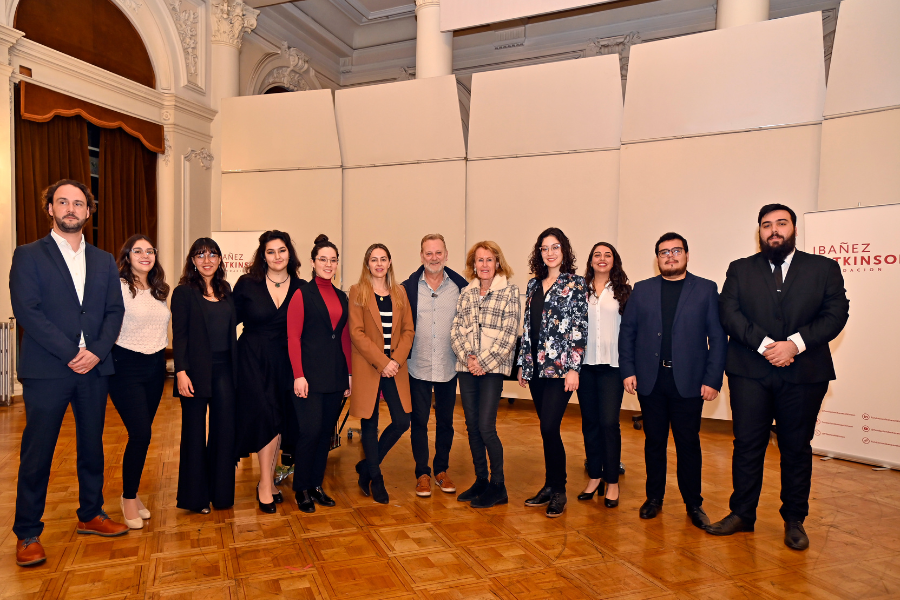Chilean régisseur debuts in Kazajistán
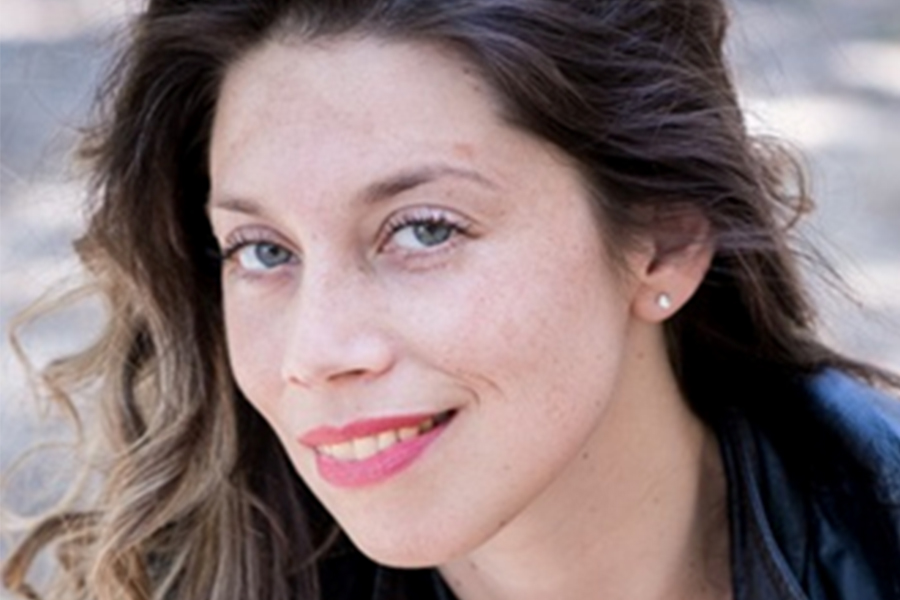
Meet Christine Hucke, the young Chilean stage director who debuted at the Abay Opera house in Almaty, Kazakhstan with the opera Il barbiere di Siviglia.
.
It was the year 2010, when Christine made an internship in stage direction with director Emilio Sagi for the assembly of Rossini’s Il Viaggio a Reims at Teatro Real in Madrid, that she began her career in the world of stage direction.
.
After that enriching experience, she continued at Municipal de Santiago, Chile as a production coordinator and assistant director with well-known reggiseurs in various operas. The year 2015, and thanks to a scholarship from Ibáñez-Atkinson Foundation, she moved to Italy where Christine currently lives, to do a Master in Opera Scene Direction at Verona Opera Academy managing to nurture her experience with the learned concepts of the Italian academy.
.
In March 2015 she debuted as regisseur in a national theater with production The Barber of Seville at Teatro Regional de Rancagua in Chile with great praise from the public and critics. Her passage through the direction of scene did not stop there. Then she made the staging of the opera The Cat in Boots in adaptation for children and the concert The 4 Seasons in a version also for children entitled My first Four Seasons, for the season of Municipal in Santiago of Chile.
.
Her first international leap will be in April 2018 when she will direct the staging of Rossini’s El Barbero de Sevilla with scenography, costume and lighting by Patricio Pérez, for the Abay Opera House season, in Almaty, Kazakhstan.
.
Tell us, how does a dancer decide to study theater and then stage direction?
Each discipline gave me lights of the other. My first love was dance, it was my first language and my first form of expression. At first my interest was only for classical ballet, but I was lucky to train myself in a place like the conservatory “Izidor Handler” of Viña del Mar, where the vision was to train integral dancers for what they had as based on the academic technique, but also including the training contemporary dance, Spanish dance, history of dance and music, which gave me a versatility that I was not aware at the time, but which led me to develop later in other forms of dance and that undoubtedly gave me a solid basis for my future life in art. And within this development the topic of interpretation was always something that caught my attention. I remember that when I started to give roles to dance I paid a lot of attention to the interpretation indications of my teachers, so I not only worried about moving my body correctly, but I was also interested in creating the stories of the characters I had to take to the stage, so I guess that being a child I always looked for the form of “telling stories” on a stage. That interest of mine was increasing as I grew and in that search I started studying Theatre. Discovering this discipline was wonderful, as it opened the door to why? I started to “talk”, to discuss, to create, to work in a creative collective, to have an opinion and to have powerful arguments for that. The dance always accompanied me only that now I had another tool to be able to continue delving into my interests since I had learned to speak another language: the theatre. And it was during this period that I started to get interested in the direction. In those moments and as a way of being able to afford part of my studies, I applied to start doing assistantships in the field of acting and I think it was developing this vein that made me begin to know this trade, making me feel very attracted by this. Shortly after graduating, they called me to do the choreographies of a production of “Carmen” that would be set up in Valparaíso and they also offered me to be assistant director of that production, which to my surprise would mean that I was about to start learning a third language: the opera. In this I found all the art forms that interested me: music, theater, dance, design … In short, I felt that it could be a contribution from my experience as an interpreter, but now from the “back stage” as director. That’s how I came to the address and specifically to the opera.
.
How has your experience as a woman been in the world of the arts and especially in the world of Management?
In the world of arts there is something that is clear, and this falls for both women and men, without work and discipline there are no results of any kind and taking into account this, at least for me it costs much less to survive in this without die trying. I think that it is not necessarily a virtue to strive to achieve something, it is the obvious, what must be done. I have lived very intensely every period of my life in art which makes me feel that the steps have gone up one at a time, being able to enjoy this journey with sunny days and other stormy days, with successes and mistakes, learning much more of the errors, place from where more strengthened I have left. With resources and without them what has always generated in me a powerful awareness of respect and valorization of being able to have a space to create and a stage to be able to share the results of intense periods of work, whatever this place may be. For me they are all equally important. I am very self-critical and I fully realize when something I do wrong and of course I seek to learn and not fall back into that mistake and so I will continue learning until the day I die. I think all this has prepared me in a better way for the challenges presented by the world of management, that answering the question of how I have faced being a woman, I would have to answer that it is in the latter where I began to notice a certain “underlining” in the fact of being. Despite the fact that my way of thinking has never been a subject for me and because I have certainly had many better experiences in this regard, it would be to try to cover the sun with a finger not commenting that unfortunately in our century still exists in some people the mentality that if a woman hits the table “is a hysteric”, but if a man does “he knows what he does” and in that, of course I totally disagree simply, because I do not see difference. In this there is everything, there are men and women who do their job well and there are men and women who do it wrong. End of discussion. And I understand that this is what should be evaluated when working in this trade, the capacity, coherence and quality of the work. The rest is a subject that bores me deeply.
.
In your opinion, what is the contrast between the training of directors in Latin America versus Europe?
First of all, it should be noted that in general in the world there are few places to be able to train specifically in opera direction and in our continent I understand that there is only the Teatro Colón of Buenos Aires. The way normally is to work as an assistant and in practice you learn the trade, which I think is also very important in a specialty like this.
.
But mainly what brings the power to move from Europe for an artist and in this case under the prism of the direction, has to do with that all the time you are able to refresh your cultural and artistic referents, you learn by watching. I nourish a lot of what I see in the cities, with its people and the architecture of the place that tells you about the historical events that happened in those places. You can visit museums, shows in the streets, it is easy to go to see productions of great stage directors who have first class singers in important opera houses, there is a lot of activity which basically increases your level of demand and enrich your points of sight at the moment of sustaining your own ideas. Europe is a place where you can learn a lot, but we as a Latin American continent have a wonderful history and artistic language that makes us unique and is our best letter of introduction. I think we have a lot to tell, we just have to start to empower ourselves with that idea. It would be very interesting to be able to generate instances of training in our countries, such as for example that more opera houses can open their doors to those who are interested in knowing this world and then be able to develop in this area, whether they are stage directors, set designers, costume designers , illuminators, generating spaces of experimentation accessing to know from inside the world of the opera and its language. In this way we discover our own artistic codes finding a common language from the experience of doing, but from Latin America.
.
As an anecdote related to this topic, I remember that being in one of the master classes in Italy, as an exercise we were asked to tell the story of an opera, I chose the Boheme and in a moment of the story I was interrupted by my teacher who exclaimed : “… we are facing an exponent of Latin American magical realism …”. I was so surprised with your comment that just when I was back on the train that was taking me home from Verona to Modena, I managed to process the tremendous compliment he had told me and the tremendous responsibility that meant for being born in this part of the world. . And, by the way, I loved being recognized as such.
.
What have been the pillars that have kept you going during these years, family friends or some entity?
My family has always been a fundamental pillar. On the maternal side, I come from a family of musicians and designers, all self-taught. My great-grandmother learned to play guitar by looking through the bolt of a door so the premise was always the one she wants, regardless of the circumstances that you have to live and I have lived this to this day with unconditional and essential support for myself .
.
Of course the friends who know about your dreams are also always very supportive. And in these last years without a doubt my love, Juan Pablo. With him we have lived together this adventure of going in search of constant growth and in that we have accompanied and supported a lot since this road is always on the rise.
.
And as an entity the “Fundación Ibañez-Atkinson”, they were interested in my work becándome to be able to pay for my studies in Italy following closely my path in development, for which I am very grateful.
.
Do you think that your work motivates more women to follow the path of stage management?
I hope so and I hope I am a worthy representative of our gender. From my incipient road in development, yes I am clear that the only way to achieve the objectives set is having the conviction of being able to meet them, however difficult it may seem and working hard and without rest is the premise. Nothing is free, nothing is achieved without making the maximum effort and working hard to fulfill it … and of that, women know.
.
In your opinion, what is the value of networking for a Latin American artist?
Networking is essential, and to understand it in that way is very important. As a region, Latin America has a lot to tell. By geography, language, way of facing life, there are artistic languages that we have only to belong to this wonderful continent so if we unite and strengthen each other from our expertise we can grow a lot and shine with the strength of it.




